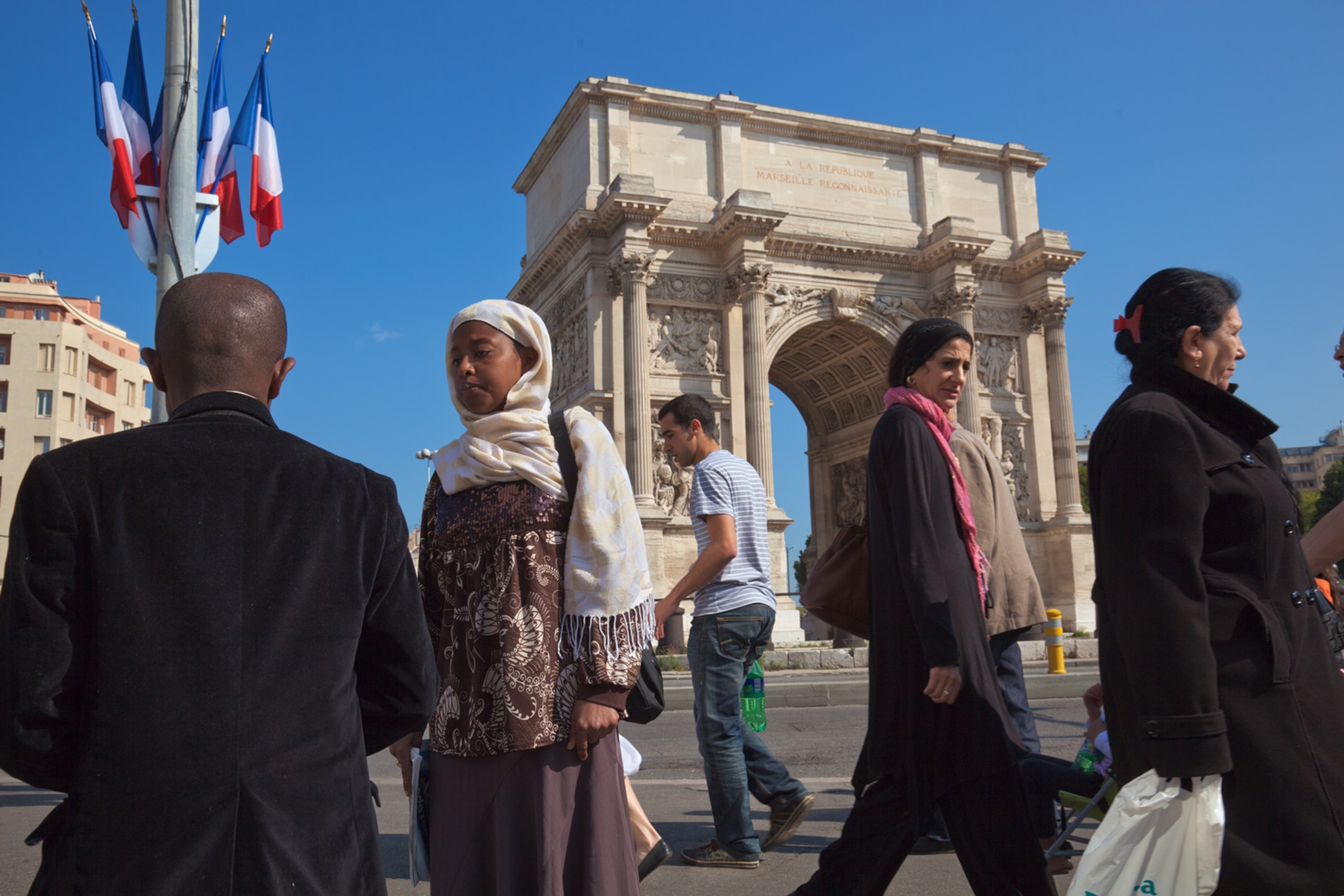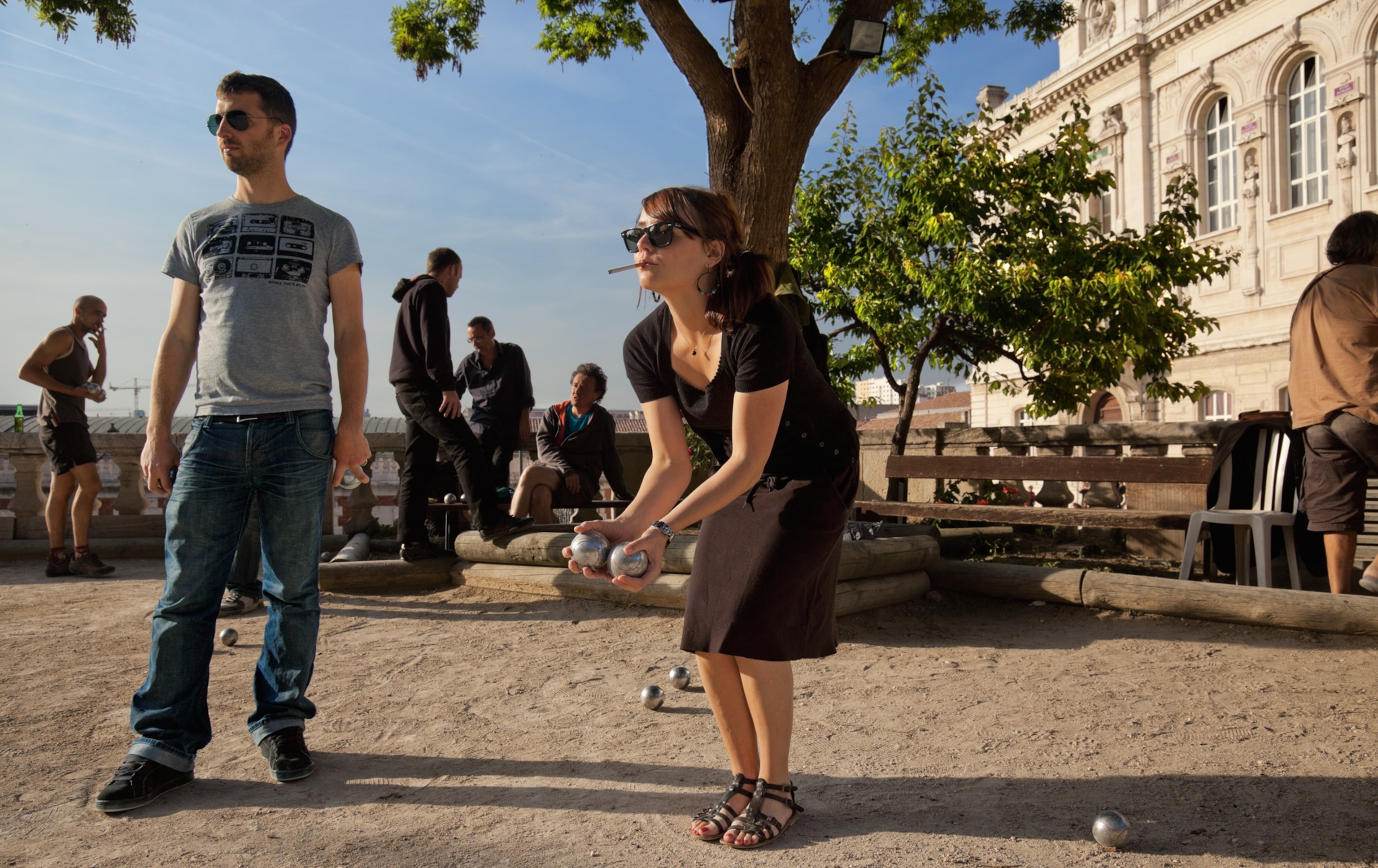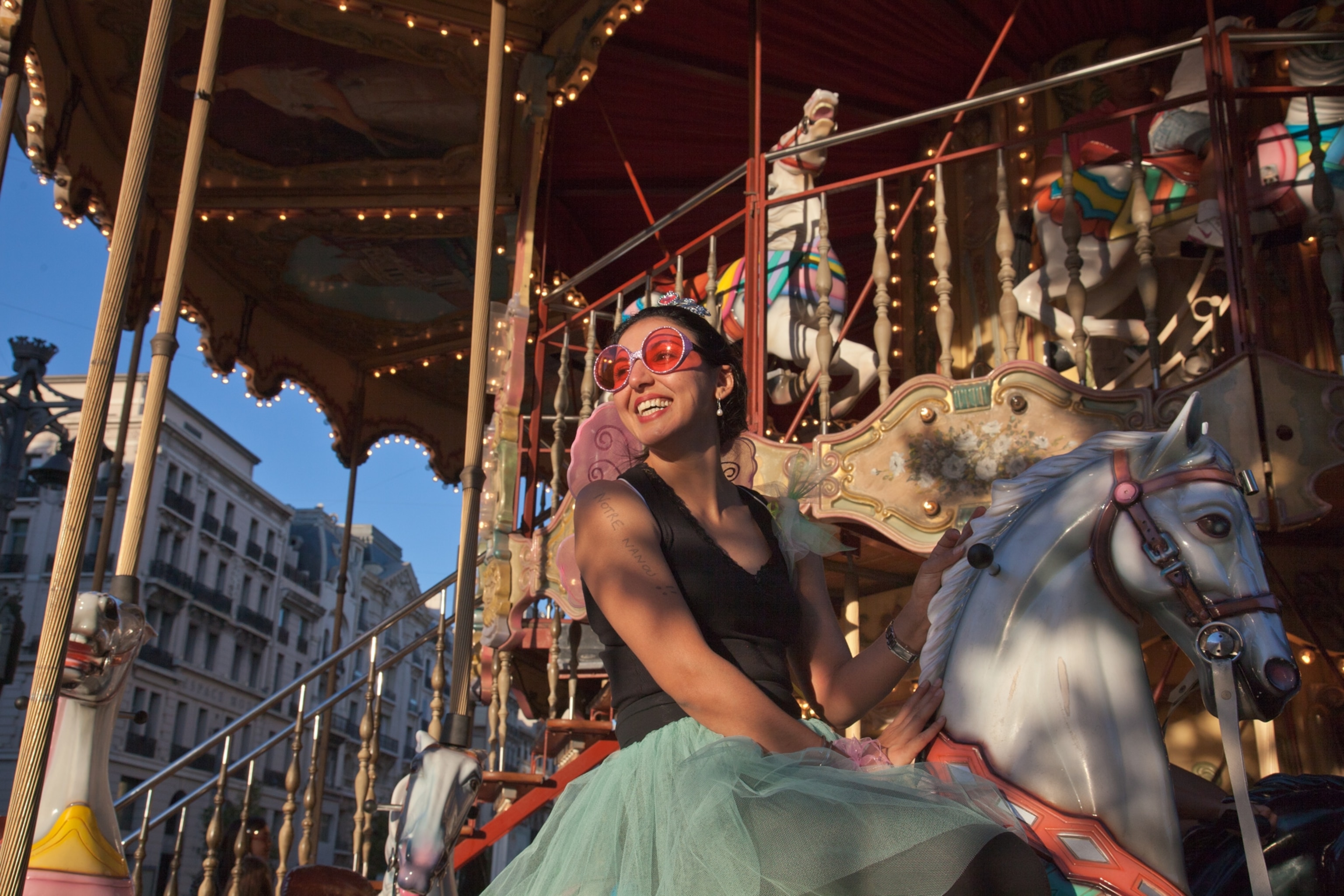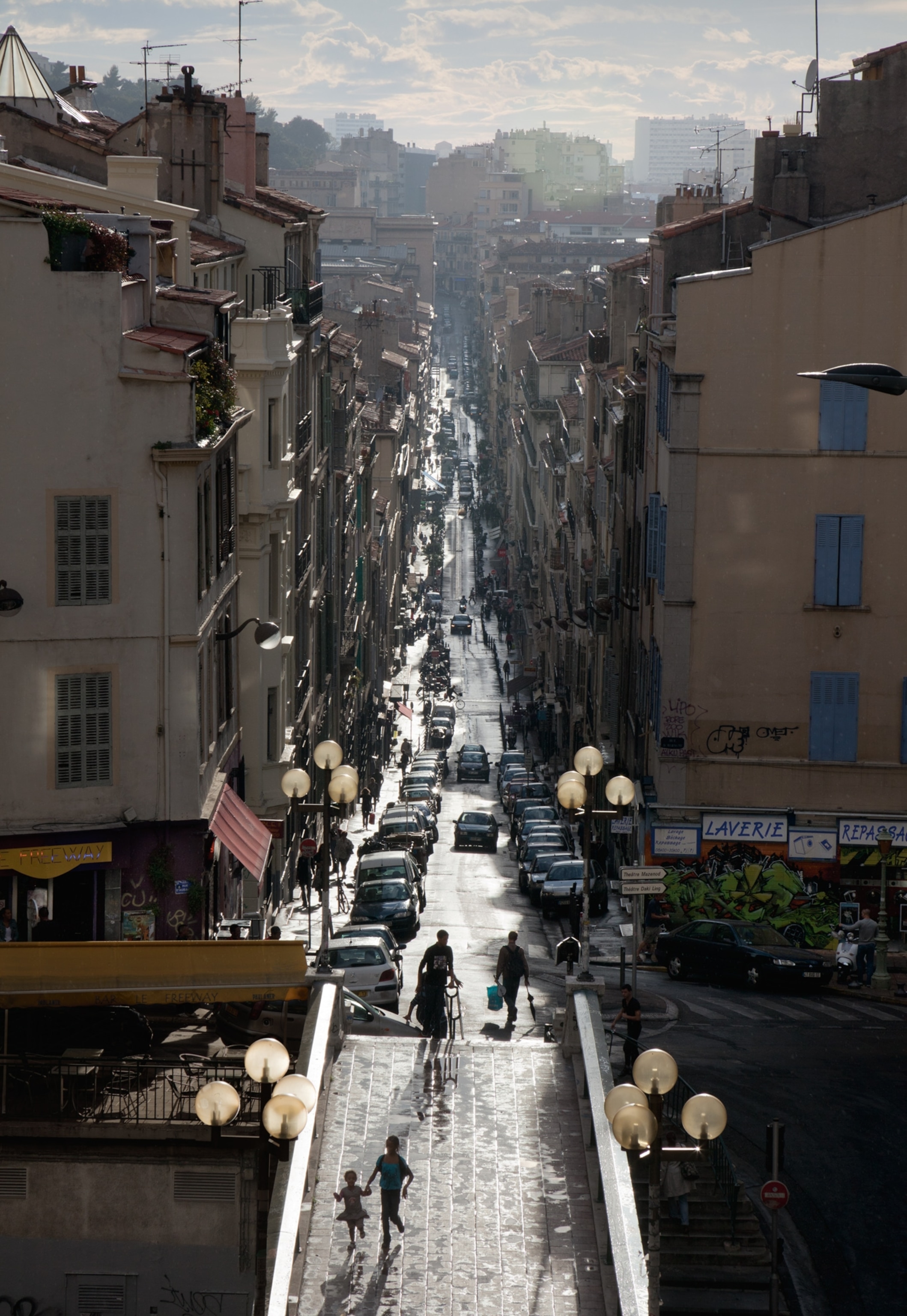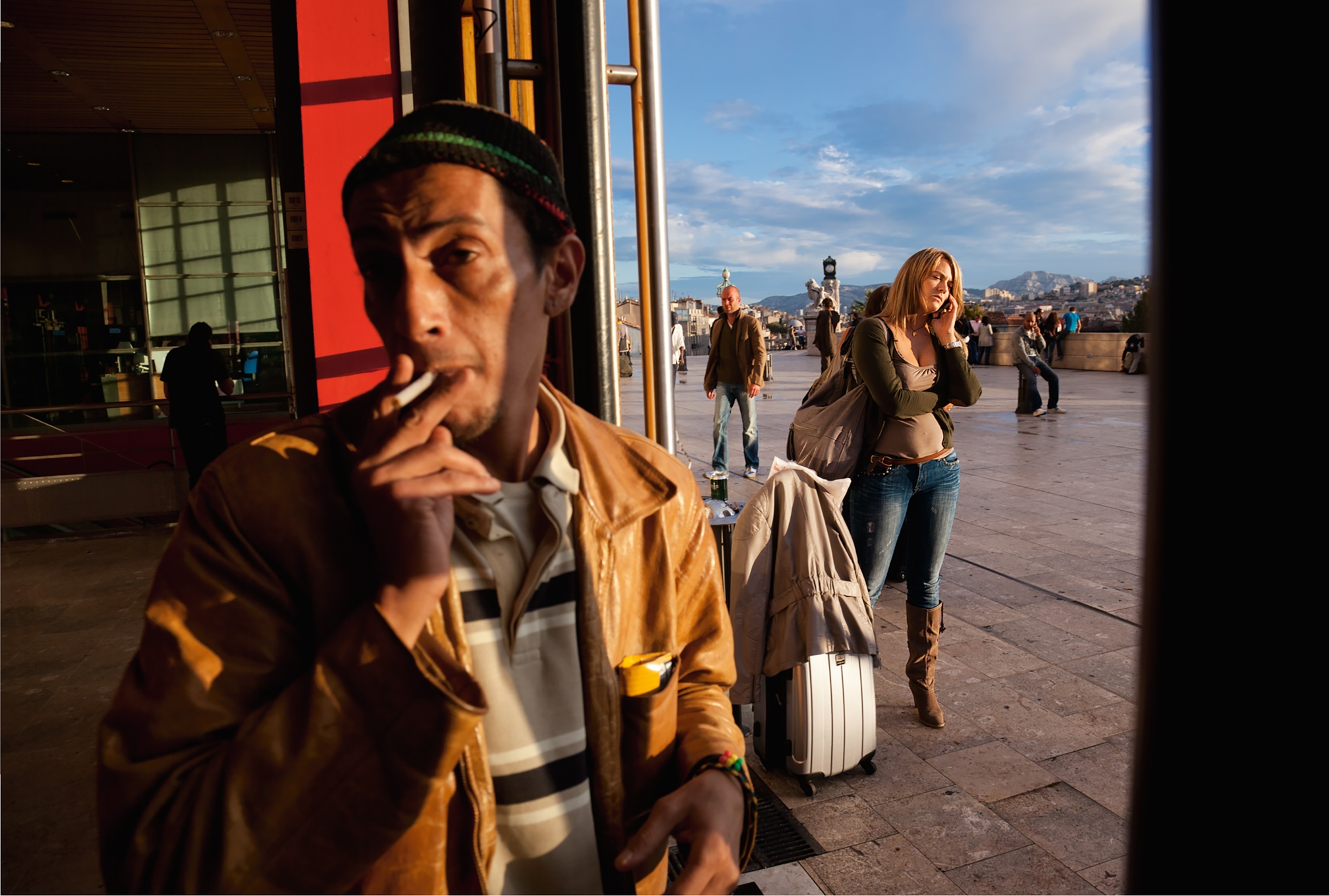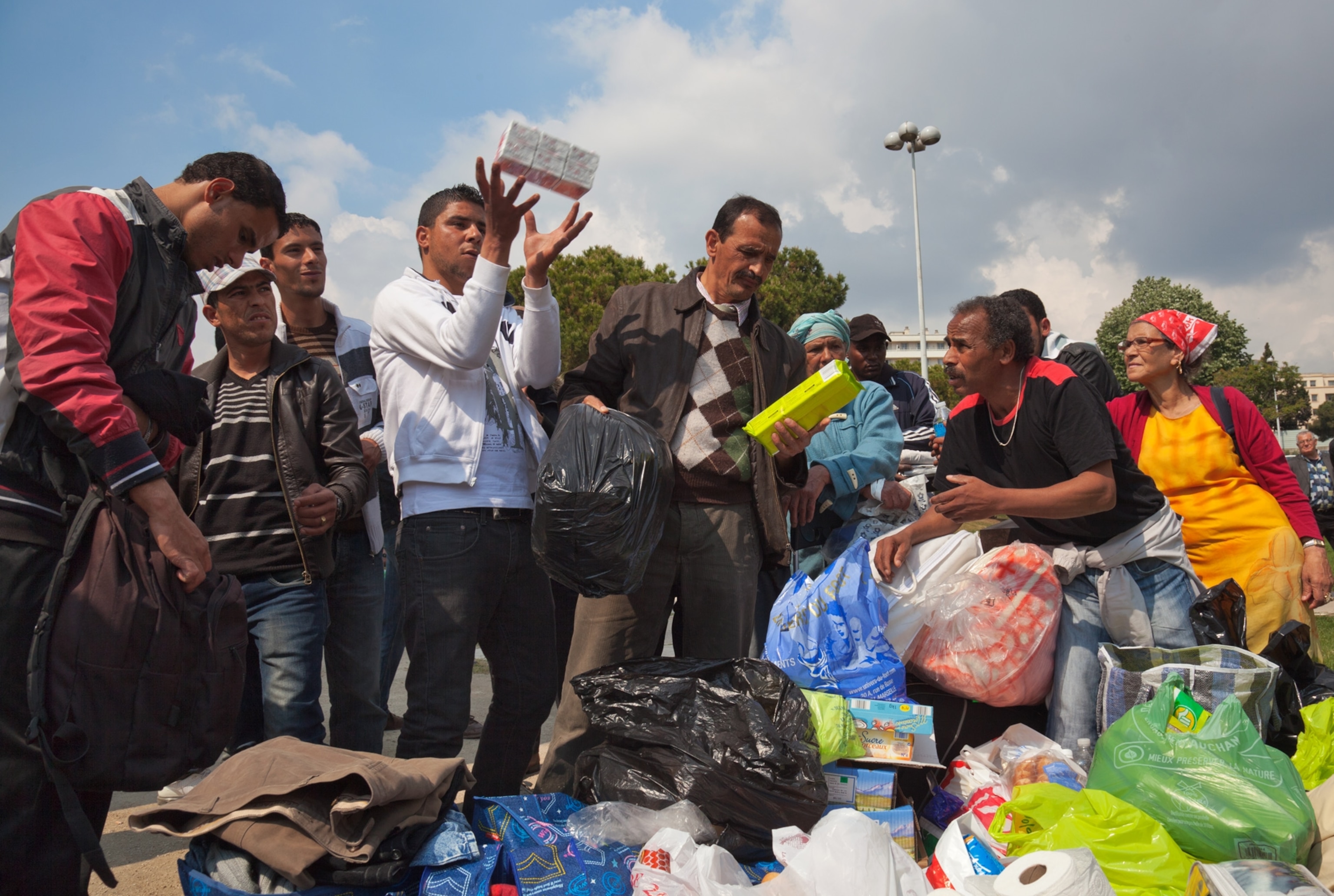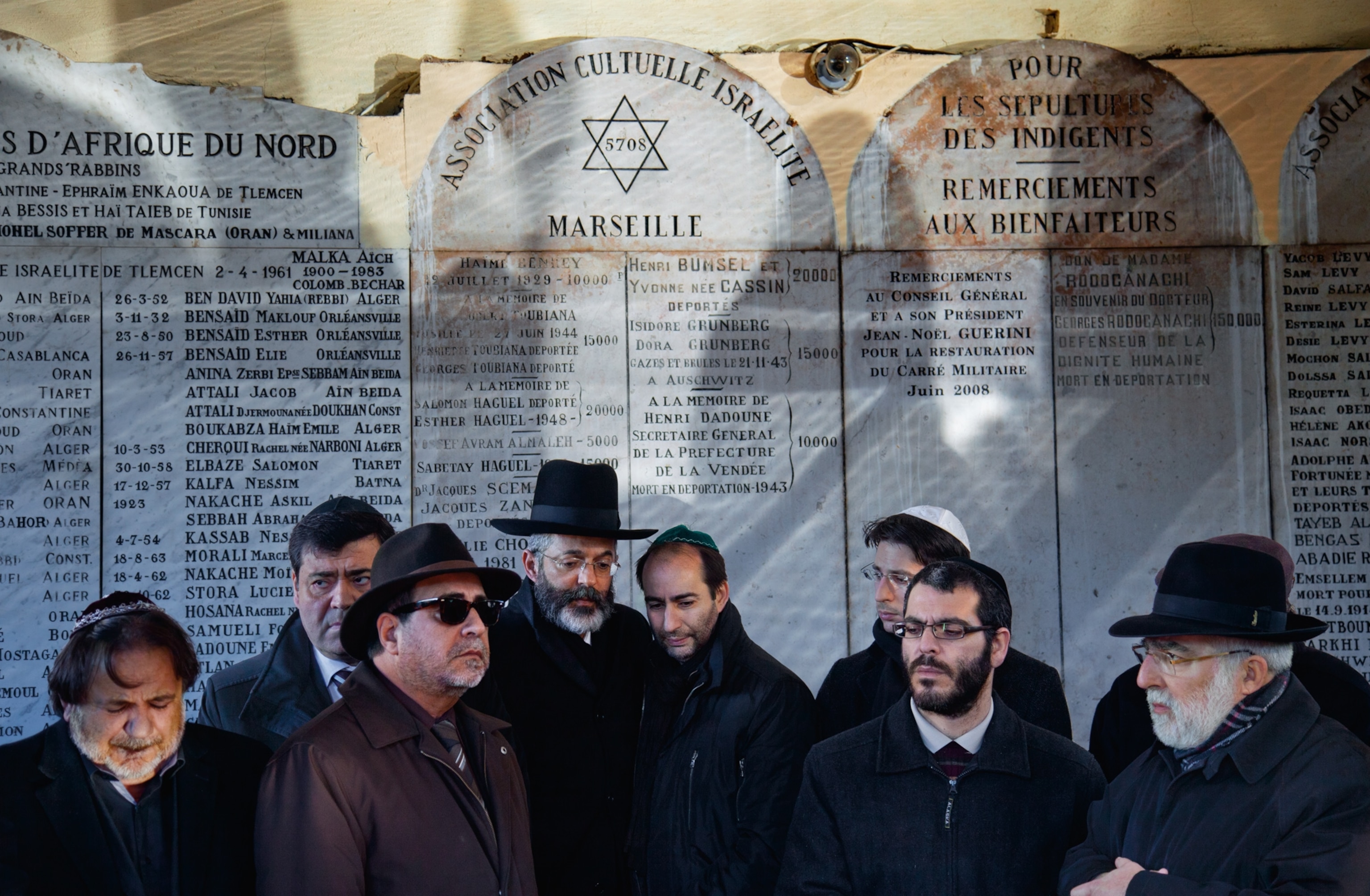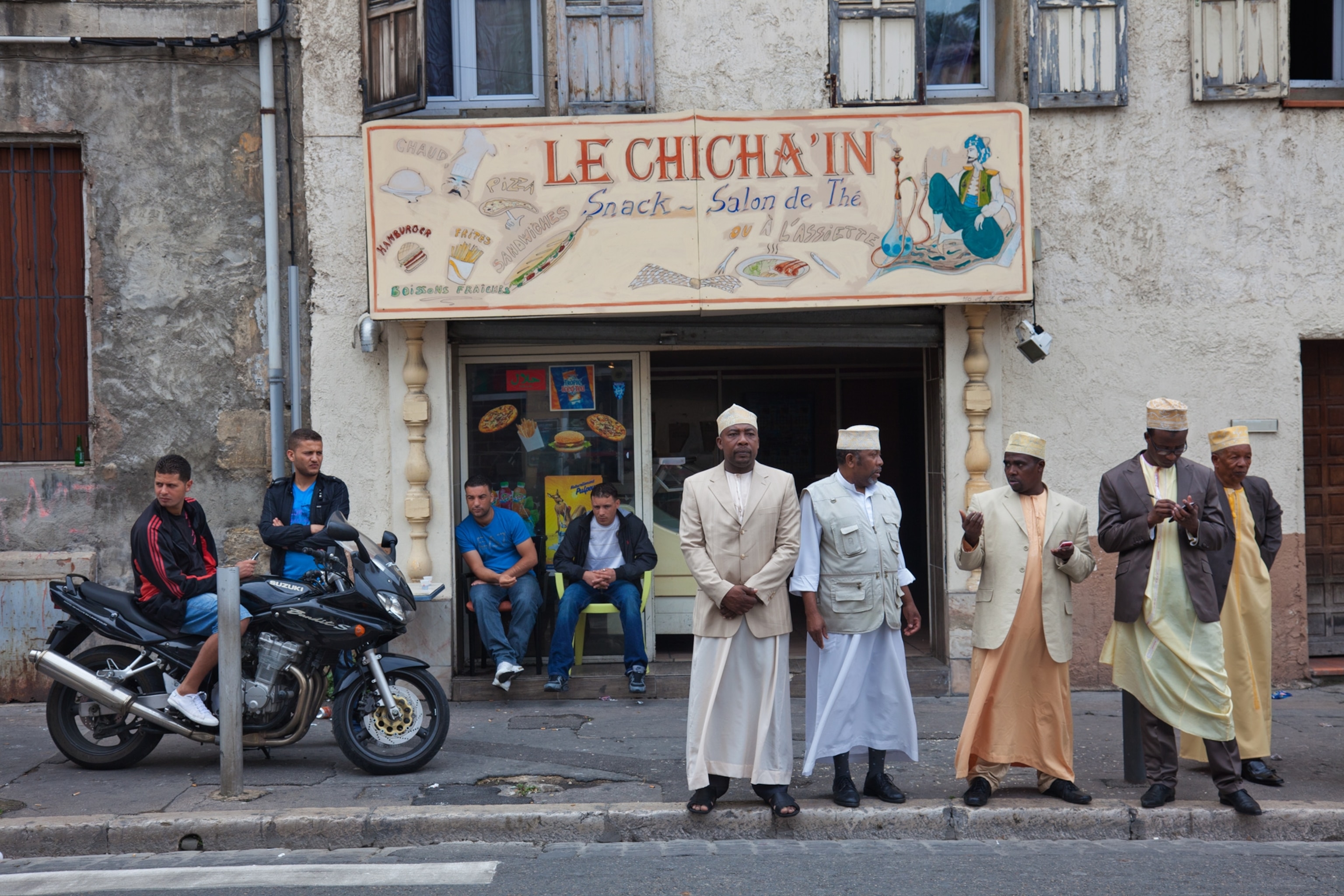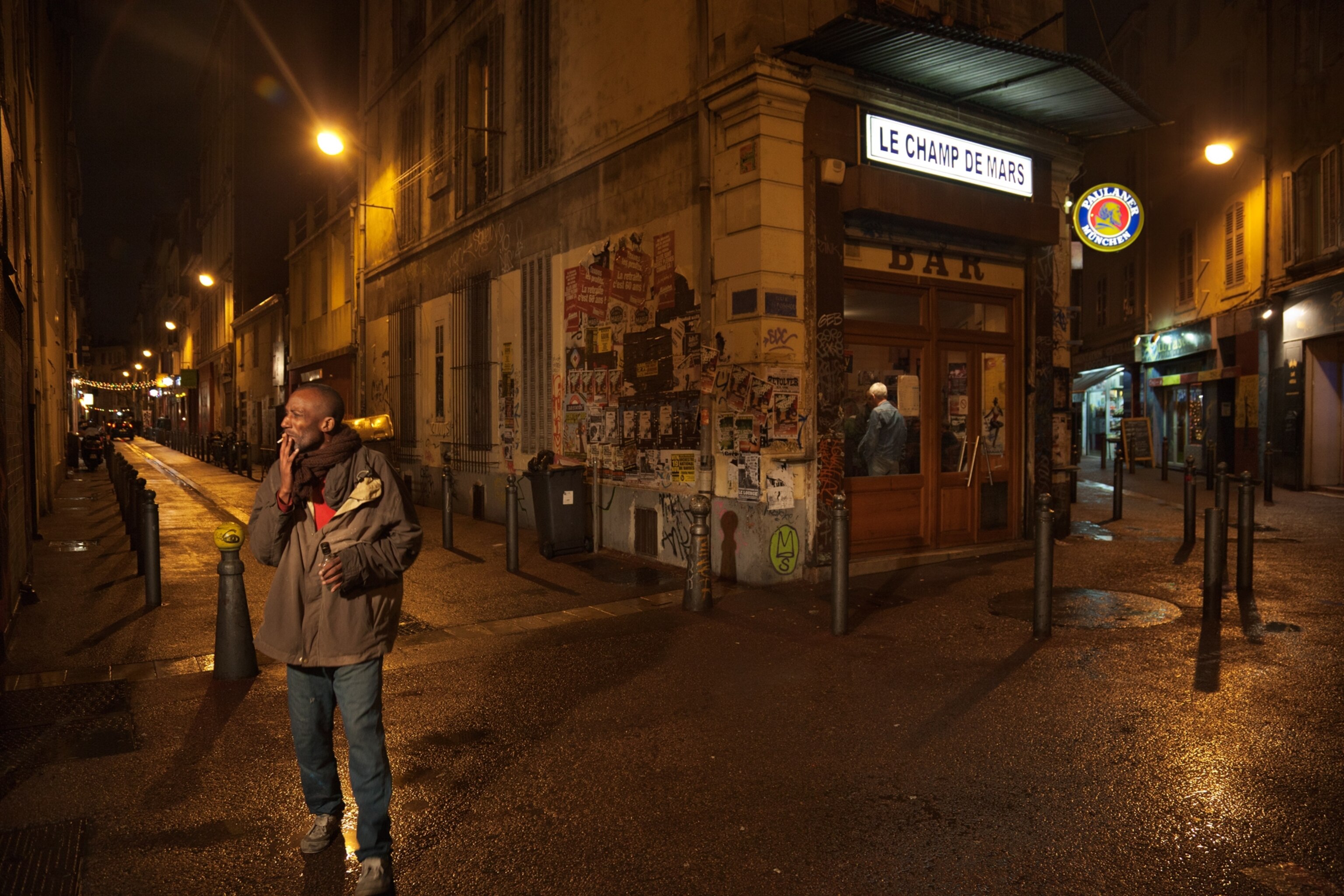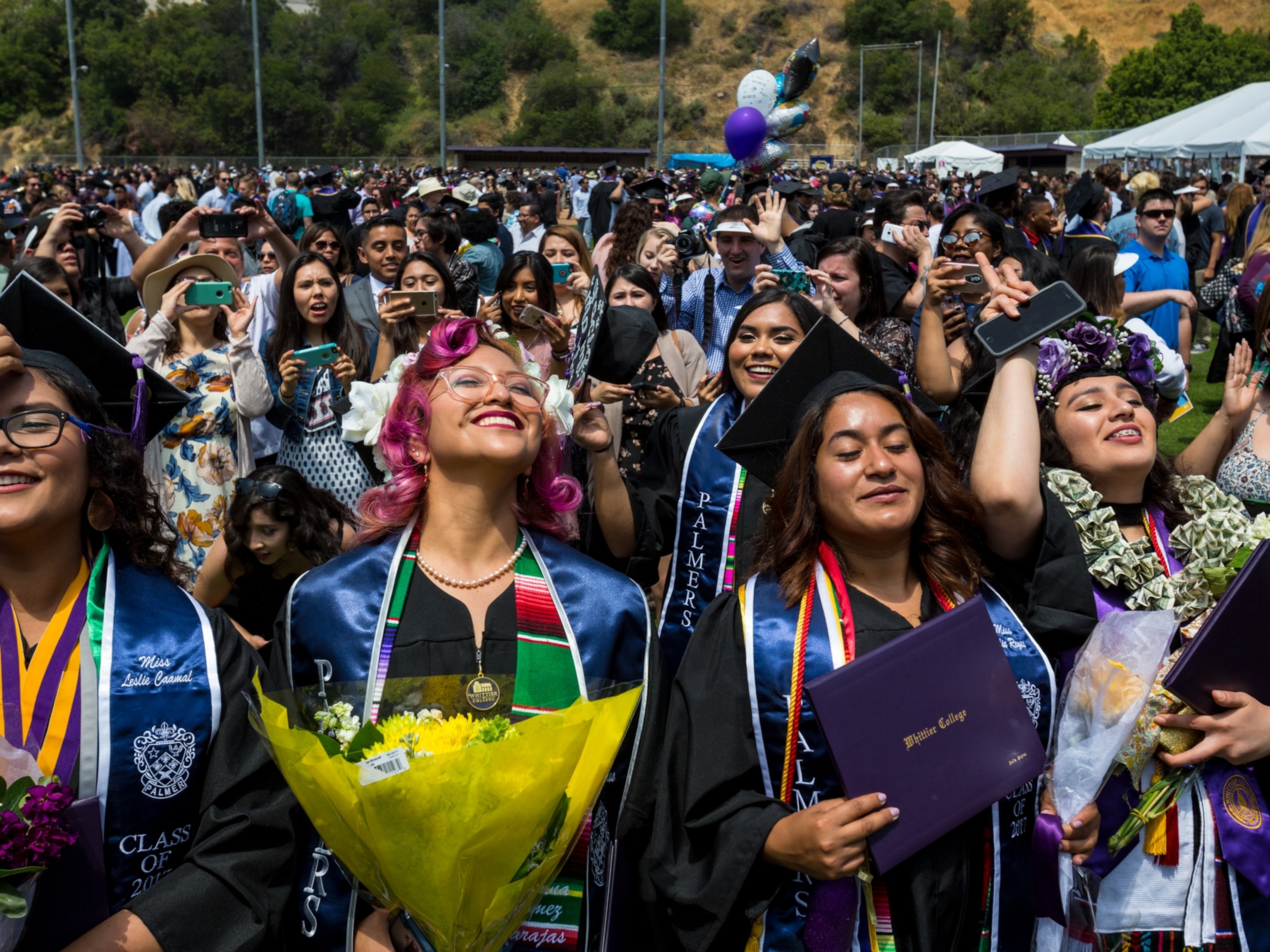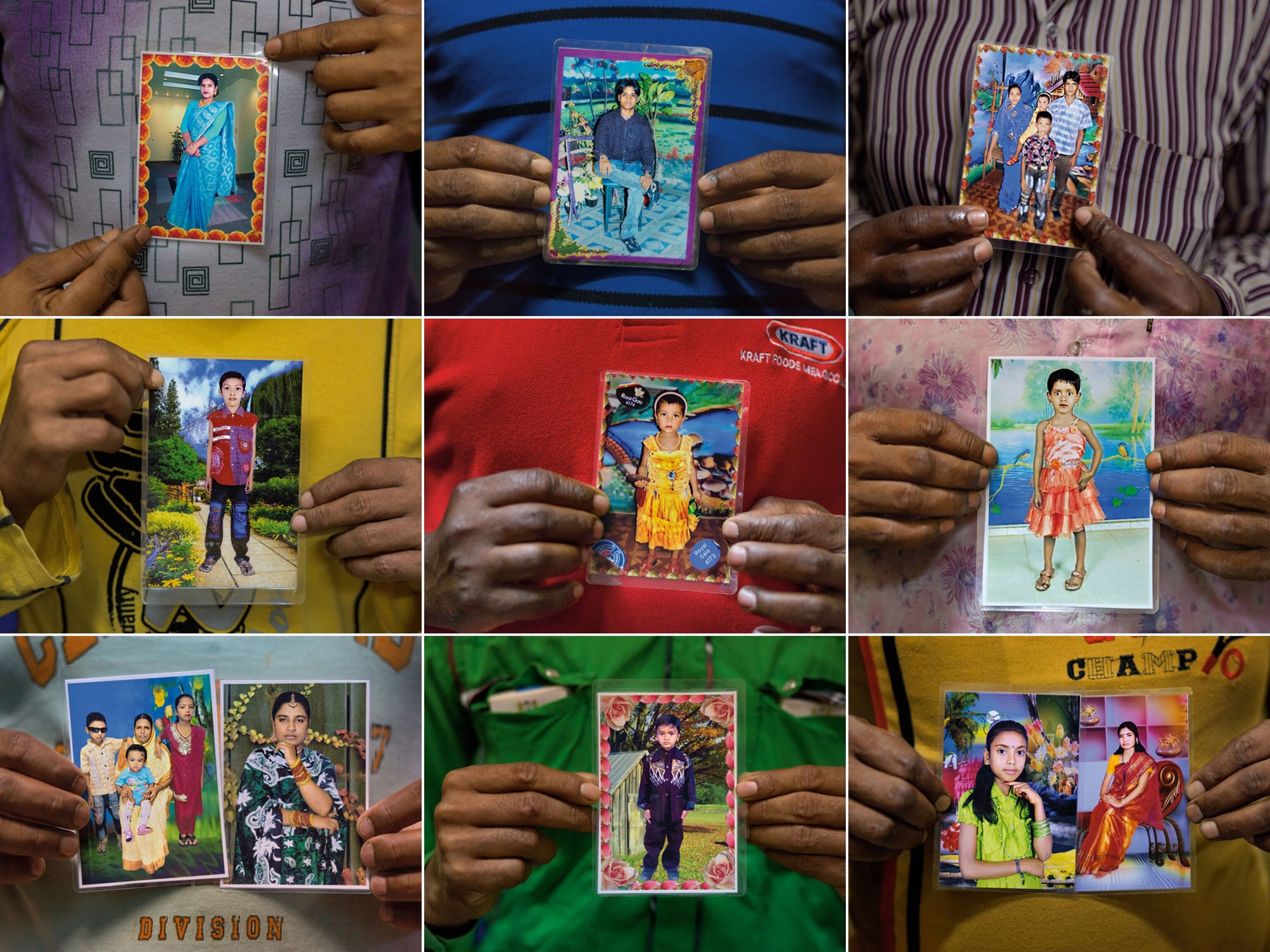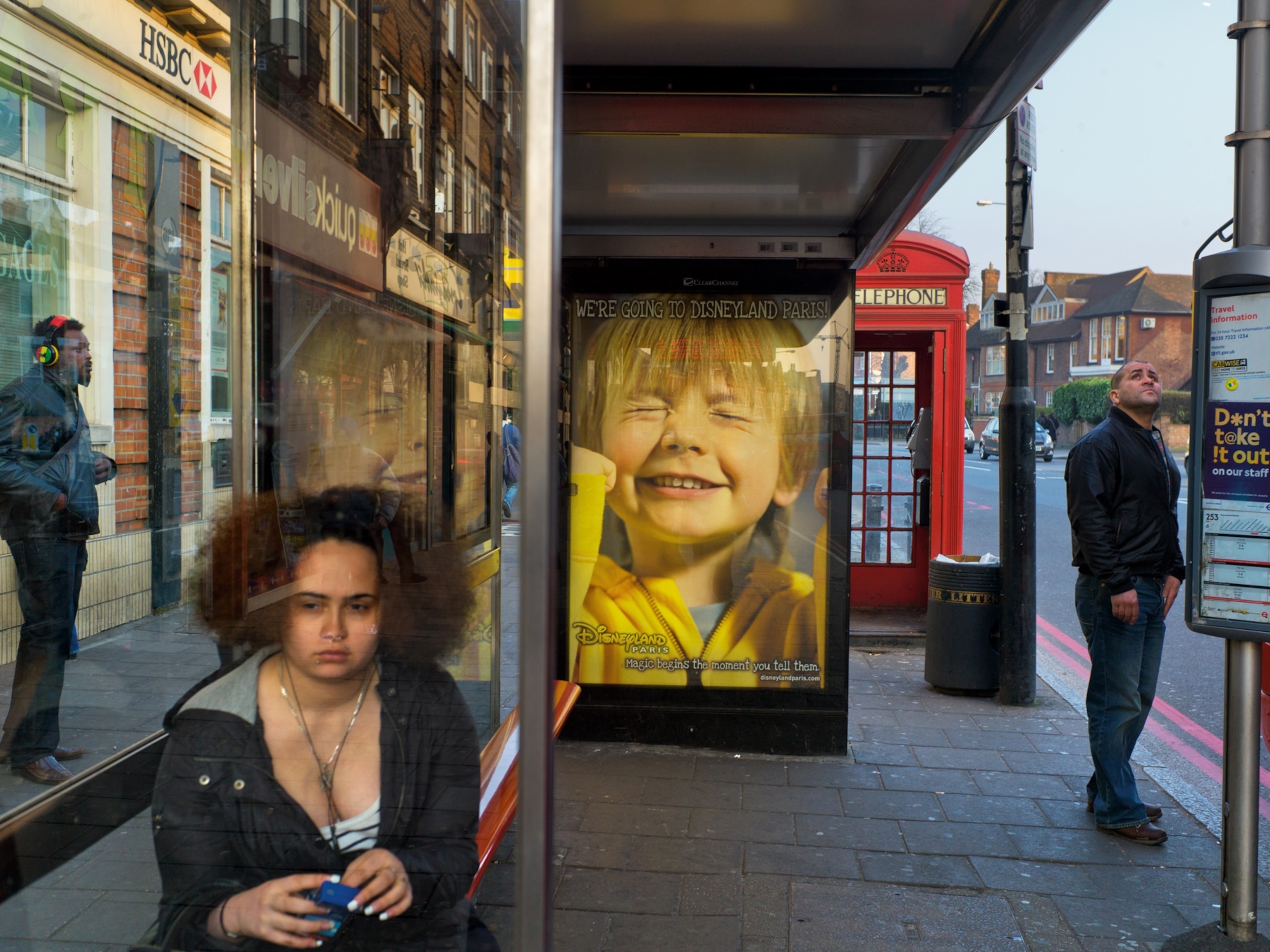Marseille's Melting Pot
As more European countries become nations of immigrants, is the multicultural city of Marseille a vision of the future?
It's tempting to say, and probably true, that no rule made by Paris goes unbent in the city of Marseille. The capital of Provence has a well-deserved reputation as a rough and unruly place, a port that attracts all kinds of contraband and all kinds of people, some of them contraband too. Over the centuries, they've mostly come by sea—mingling, scheming, brawling, coupling, feasting, and drinking with unashamed and unapologetic flamboyance. The city has served as a refuge for people fleeing persecution, pestilence, and poverty. Recently its sizable immigrant influx has been largely of Muslim origin, and today when you gaze from one of Marseille's many beaches across the Mediterranean toward the unseen North African coast, you can almost imagine a human deluge on its way as the spreading unrest in the Arab world pushes more refugees and job seekers toward the shores of Europe.
If you listen to far-right politicians, you'll think this immigrant wave means, inevitably, an onslaught of Islamic puritanism that will challenge European ways and force every woman to dress like a Taliban bride. But then you realize that many of the men and women jostling around you on the Marseille sand are from African and Arab backgrounds, and that the young women are wearing bikinis, not burkas. Thanks to a remarkably efficient public transport system, you can get to Marseille's beaches from any part of town in less than 45 minutes.
And so for several months of the year, rich and poor, white and black, African and Arab, Muslim, Christian, and Jew, all find their own space on the sand, strip off most of their clothes, and settle down to socialize—and be socialized— under the Provençal sun. Ask them where they're from and you won't hear Algeria or Morocco, the Comoros islands or even France. Almost always they'll simply say, Marseille.
As more European countries become nations of immigrants, Marseille may be a vision of the future, even a model of multiculturalism. Not that its equilibrium is easy to maintain. In particular, the ongoing conflicts in the Middle East periodically send ripples of fear through this French city. "During the war in Iraq in 1991, I said to myself, Things are going to explode in Marseille—because of the images that were coming into Muslims' living rooms through their satellite dishes," says Michèle Teboul, president of the Provence chapter of CRIF, the Representative Council of Jewish Institutions of France. "We said, If this doesn't explode now, it's never going to explode." And it didn't: Local Muslim leaders managed to calm things down by working with other religious figures. Similarly in November 2005, when riot-fueled flames erupted in just about every other French city's immigrant-filled housing projects, Muslim Marseille stayed cool.
Some locals believe, with reason, that the Marseille miracle of social peace has a lot to do with its beaches, which serve as its great melting pot. Farouk Youssoufa, 25, courted his 20-year-old wife, Mina, at the Plage de Corbière, and they now frequent the Plage du Prado. Youssoufa was born on a French island in the Comoros archipelago between Tanzania and Madagascar, and his skin is as black as anyone's in Africa. Mina is the fair-complexioned, French-born daughter of Algerian immigrants. "The new generation is much more of a mixture," says Youssoufa, who works with boys and girls of almost every conceivable skin tone and ethnic background at a cultural center in one of the rougher northern neighborhoods of Marseille. On the beach, especially, "there are a lot of different communities that mix, that mingle," Youssoufa tells me one blistering hot afternoon in May. "Voilà: With time we've learned to live together."
But "voilà," a recurrent tic in Marseille conversation, doesn't quite tell the whole story. The neutral turf of sun and sand reaches only so far into city life. While other municipal rituals also unite people (a fanatical support for the Marseille soccer team, for instance), once the game's over and the sun sets on the beach, prejudices can surface. There's plenty of racism to be found in Marseille, says Mina, including among its Muslim Montagues and Capulets. "When we are in places where there are a lot of people, it's not such a problem. But when we go in the neighborhoods where the Arabs are, when the two of us pass by we're looked at a lot, and sometimes they insult me." She sucks in her breath and shakes her head.
Such a story raises the question of whether Marseille is really an example of cosmopolitan harmony—or a society on the brink of unrest. The uncomfortable answer is that it's both.
Marseille's tile-roofed city hall, built in the time of Louis XIV, is an understated edifice by the standards of French officialdom. It's described in travel literature as "of modest proportions." Not so the mayor who serves there. Jean-Claude Gaudin looks half as wide as he is tall, with his double-breasted suit jacket unbuttoned and the collar of his purple pin-striped shirt undone. The 72-year-old Gaudin lumbers into his office and settles behind his desk like a bear guarding honey. He has held this job since 1995 and doesn't look inclined to leave anytime soon.
Outside, sailboats pack the Vieux-Port, their masts glistening in the hard white light of a summer morning. Despite the heat, the windows are open because "the air-conditioning gets me in the throat," says Gaudin. The atmosphere is an odd mix: subtropical air wafting over baroque decor.
"Marseille is the oldest city in France," the mayor begins. "It's been in existence for 2,600 years." I think for a moment that Gaudin is going to say, as the Marseillais are wont to do, that the city was founded by the Phoenicians: "Marseille, white, warm, alive; Marseille, the younger sister of Tyre and Carthage, successor to the empire of the Mediterranean; Marseille, always getting younger as it grows older," wrote Alexandre Dumas. But Gaudin wants to make another point.
"It's a port," says the mayor, "and so we have always been used to having foreigners come here. The city itself is composed, stratum by stratum, of populations from abroad who came because of international developments." After 1915, for instance, Armenians escaping genocide in Turkey began arriving. In the 1930s Italians who fled fascism settled in Marseille. After World War II a Jewish immigration from North Africa began. And by 1962, after France had given up colonial control of Algeria, Morocco, and Tunisia (the Maghreb), came tens of thousands of pieds-noirs, or black feet, who were actually white French citizens fleeing newly independent Algeria, where many had lived for generations.
At the same time, "after the decolonization of ‘black Africa,' in quotes, as we say," Gaudin explains, "and the independence of the countries of the Maghreb," Marseille gradually became filled with other people "issus de l'immigration"—produced by immigration. Even as the mayor says this, he seems uncomfortable with the politically correct euphemism "issus de l'immigration," so I ask him to be more precise. "That means that often the grandparents were in Algeria, the parents came here, and the grandchildren are French but have an Arab last name," says Gaudin. In other words, people who are French by birth but are still viewed as of foreign extraction.
Yet the mayor of Marseille can only guess how many of his city's residents—20, 25 percent?—are issus de l'immigration. He does not know how many are of Arab or African descent. He does not know how many have Muslim roots. In accordance with France's "republican values"—its secular and egalitarian ideals—it's against the law for any functionary, including the census taker, to record a citizen's race, religion, or ethnicity. Church and state are not only separate, but religion is officially ignored. If you are French, you are French: nothing more, nothing less, and nothing else. Yet Gaudin knows that even for the second and third generations, assimilation does not always come easily. The challenge for any city with a large immigrant population is rarely how to deal with the first wave of arrivals, but how their children and grandchildren will adapt, or not.
Gaudin has a reputation for quietly flouting France's vaunted republican values. He may not know how many of his citizens are Muslims, but he knows he has to find practical ways to work with them. One way is by blurring the official line between church and state. In the 1990s city hall reached out to religious leaders to create Marseille Espérance, or Marseille Hope, the amalgam of Jewish, Christian, Buddhist, and Muslim leaders that helped shepherd the city through the various crises triggered by conflicts at home and abroad over the past two decades. The municipality has worked closely with religious leaders to calm the streets. The city also supports religious radio stations, cemeteries, and civic groups. Such government-religious cooperation may run contrary to official policy, but in Marseille pragmatism rules.
Gaudin points out that the beach isn't the only geographic feature that has kept the city's melting pot bubbling. "Marseille's good luck is that it is surrounded by a belt of mountains." Immigrants and longtime residents have learned to live more or less on top of each other. In the 30 years after World War II—les trente glorieuses, as the French call them—when the country's booming economy needed foreign workers for factories, many French cities threw up housing projects for immigrants in distant suburbs. "We did the opposite," says Gaudin. "We built in the city."
The city center "is a district with a very numerous North African population," says Gaudin. At the heart of Marseille, on the plaza at Porte d'Aix, casbah merchants sell voluminous djellabas and Islamic veils, tea shops serve honeydripping sweets, and travel agencies specialize in pilgrimages to Mecca. The whole neighborhood is a hive of immigrants trying to find space for their new lives and old culture, even as both evolve into something different. One of the city's oldest mosques, El Takwa, is here; in the cafés, the older gentlemen sipping espressos wear the distinctive skullcaps of the Comoros islands; many women wear scarves over their heads, the hijab of conservative Muslims. Only a very few have ever worn the ultraconservative veil, the niqab, that covers the whole face.
And now there are fewer still. In April 2011 the government of President Nicolas Sarkozy banned the public wearing of such veils altogether. One spring day near the Porte d'Aix after the law had gone into effect, I passed a young woman who looked like a distracted nun. Her whole body was swaddled in black, and she wore gloves on her hands to hide them despite the hot sun. No doubt she would have liked to cover her face too, but instead she had pinned her veil back to conform to the new legislation. Her round, pretty face looked determined and more than a little defiant as she edged through the crowd. A true Marseillaise, the woman was obeying the letter of the law but not the spirit.
During the Muslim holiday of Id al-Adha, the Feast of Sacrifice, I sat near the market on the Rue Longue des Capucins—which could be a street in Algiers or Tangier—having a glass of rosé (something I could not easily have done on that occasion in Cairo). I watched a bearded man carrying what I thought was a naked baby through the market. Then I realized it was a skinned lamb that was ready to be butchered. The annual slaughter of sheep during these Muslim high holy days has become a political issue as the government tries to confine the practice to official abattoirs on the edge of the city. But even there, those who resent the encroaching Muslim culture point to the torrents of blood as symbols of barbarism.
"There are some feelings of xenophobia that show themselves from time to time," Gaudin concedes as we talk in his office. "But my policy is completely the opposite—a policy of generosity, fraternity, and unity—as much as I can."
One test of Marseille's efforts to accommodate its burgeoning population that is issue de l'immigration is the question of whether, where, and how Muslims will pray. On Fridays the relatively small houses of worship that exist in Marseille have the faithful spilling out into the streets, sometimes blocking traffic. This spectacle is cited by right-wing politicians as evidence that an Islamic horde has descended on the city. "We French are being replaced by another people and their culture, religion, and way of life," says Stéphane Ravier of the far-right National Front. "The wave of immigration has been so huge in the last 20 years that we are being submerged."
"There are more than 70 mosques and prayer rooms in Marseille," says Mayor Gaudin, but clearly that's not adequate. The idea of building a grand mosque gained traction. "The population approved—by 60 percent. They understood that each religion ought to have a significant monument," says Gaudin. The cornerstone for the mosque was laid in May 2010. The rector of the main mosque in Paris came for the occasion. A Socialist Party politician proclaimed it would signify the "fraternal cohabitation of the communities." Construction was to be completed by 2013.
Three months later I asked a taxi driver to take me to the site, a complex of buildings that had once served as a municipal slaughterhouse. "I'm the one you ask to take you there?" asked the driver, who clearly didn't approve of the mosque. "The invasion has already begun," he said as we made our way through the streets up the hill.
The committee endorsing the mosque planned to keep the muezzin quiet and mark the times of prayer with a light from the minaret instead. But conservatives complained that the minaret of the $30 million structure would dominate the Marseille skyline, a distinction long reserved for the Basilica of Notre-Dame de la Garde.
When I arrived at the old abattoirs there was no sign of any minaret being raised, no sign of construction at all apart from a few permits posted on the walls. Old men played pétanque nearby. "Is this where the mosque is going to be built?" I asked. "Yes," said one, looking at the others as if getting their consent to talk, "but I don't think it's going to happen." Why's that? "A question of money," said another, rubbing his fingers together.
Gaudin had proposed that part of the slaughterhouse complex be converted into the mosque to keep costs down. But no one in the Muslim community would agree to that. The thought of using a building located near where animals had been killed outside the strictures of religious law was repulsive to many. They clung to the idea that the mosque should be built from the ground up.
A year after the first stone was laid I went to the site again. No further work had been done. One man who had organized funding for the mosque had been forced out by another community organizer. After the feud, the money dried up. The building that was supposed to symbolize "fraternal cohabitation" among the people of Marseille had instead come to represent deep divisions among Muslims themselves. Last October, after continued complaints from local storekeepers and residents about the lack of parking spaces for the worshippers the mosque would attract, its building permit was canceled.
"If you are not from Marseille, you think there is a good sense of togetherness, where all the [Muslim] communities are mixed," says Omar Djellil of the El Takwa Mosque at Porte d'Aix. "But that's just a matter of appearances. People, because of their cultural affinities, prefer to stay among themselves. The Comorans are with the Comorans, the Algerians with the Algerians, the Moroccans with the Moroccans. Voilà!"
What worries some Marseillais is not the caricature of Talibanization invoked by right-wing extremists but what they see as the creeping Islamization of the city's largely working-class population—and not only those issus de l'immigration. "I think that Muslim culture is definitively taking over the lower levels of society," says Michèle Teboul, of CRIF. "There are many mixed marriages with Muslims."
"That's real integration," I say.
"That depends," says Teboul. "It depends if there is a mixture of the two cultures and not one culture gaining the upper hand over another," she says. In France, as she sees it, the institutionalization of secularism and the prevalence of political correctness have weakened the value systems in society and left people without any strong sense of tradition. "Loving your homeland, loving your country, having values— whether religious or other—has been put aside by the politically bien-pensant, and that has helped to break up families that no longer have points of reference, especially those that are underprivileged." Islam, says Teboul, offers a structure to the lives of many people who feel they are adrift. "I'm convinced of that," she says.
Many young Muslim men and women would be surprised to hear of Teboul's concerns. Holding on to Islamic traditions seems a lost cause, or a pointless one, to those who live in a hybrid world of mixed cultures. Their political voice is minimal. An old guard descended from earlier waves of immigrants dominates the local political machines. Italian names abound; Arab ones do not. At the national level almost all of the Muslims that Paris will listen to on Muslim issues, when it listens at all, were not born in France.
"The great paradox is that we who were born here are not recognized," says Djellil. "We have a French culture, we went to French schools, we have a lot of the same demands as our friends who are named Jean-Pierre or Frank," he says. "There's a real generational problem."
If clothes, music, and pop culture are any indication, it appears many Muslim kids have grown up identifying not with radical Islam but with the gangsta rap imported from America. The hip-hop sound and look have gone down especially well in Marseille, where the underworld is the real world for so many people. The singer who calls himself Soprano took his name from the American television series. He's of Comoran descent and proud of his Muslim faith. He started music in the early 1990s with Islamic chants, but he soon moved to rap. In his recent release "Regarde-Moi" ("Look at Me") he sings about growing up with parents who don't speak a word of French, succeeding in school only to find all doors to the future closed. One protagonist of the song puts on a mask to rob a bank, stealing to feed his family.
Farouk Youssoufa, the youth counselor who works with immigrants in north Marseille, sees the lure of crime up close every day. "There's drug selling," he says, as we watch dozens of girls and boys practice a hip-hop dance for a celebration of Marseille's diversity. "Five or six years ago there were a lot of car thefts. These days there are a lot of holdups. That's become the fashion." Youssoufa's wife is one of the instructors at the youth center. I ask if she has ever thought of wearing a hijab. "I hope so," she says, surprising me at first. "But when I get older," she adds. "How much older?" I ask. Maybe when she is 40, she says, obviously thinking that future is very far away.
What will Marseille be like by then? It may well be the first western European city with a majority of its residents from Muslim backgrounds. Many other cities will have as many as Marseille does today, and most will have their own uneasy experiments with integration. But it's hard to imagine that on the Mediterranean coast here the beaches will be any less crowded or that the people on them will identify themselves as anything more, or less, than from Marseille.

